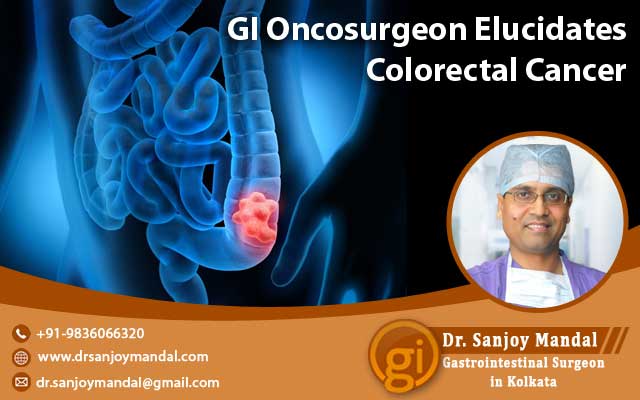Colorectal cancer, also known as bowel cancer, is a form of cancer that affects the colon or rectum. It is the third most common form of cancer in men and the second most common type of cancer in women throughout the world. As per the onco surgeon in Kolkata, colorectal cancer is the fifth most commonly diagnosed cancer in India, with 64,332 cases diagnosed in 2012. Despite accounting for just 6.3 percent of cancers, India’s mortality or death rate is among the highest in the world due to late diagnosis and presentation.
Risk Factors
According to the best GI surgeon in Kolkata, the following risk factors are associated with colorectal cancer:
- Obesity
- Inflammatory bowel disease
- Physical inactivity
- Obesity
- Smoking
- History of colorectal cancer in the family
- Consumption of high amounts of processed meat
- Heavy alcohol consumption
Symptoms
Colorectal cancer usually does not cause symptoms in its early stages. The above, on the other hand, are the symptoms of this disease:
- Anaemia
- Blood in or on the stools or rectal bleeding
- A change in bowel habits (constipation or diarrhoea)
- Belly discomfort (bloating, fullness, or cramps)
- Feeling as though the bowels aren’t absolutely emptying
- Sudden weight loss
- Discomfort or pain in the anal region
Diagnosis
Colonoscopy is the gold standard procedure for viewing the colon and rectum, says the best gastrointestinal oncosurgeon in Kolkata. Colonoscopy is a specialised test that involves passing a flexible telescope into the bowel to search for problems. Blood checks, CT scans, and MRI scans are among the other tests available.
Screening for a disease entails examining individuals who have no symptoms of a disease. In the case of colorectal cancer, the good news is that there is a pre-cancerous stage. Colonoscopy screening has been shown to reduce the occurrence of colorectal cancer by detecting and removing these pre-cancerous lumps or polyps. Detecting tumours at an early stage often increases the results and makes surgery much simpler.
Treatment
Surgery is the most common treatment modality for colorectal cancer. The new therapies for colorectal cancer at Apollo Hospitals Chennai include minimally invasive procedures such as laparoscopic or robotic colorectal surgery. Less pain, quicker healing, fewer complications, and excellent cancer cure rates are among the main benefits of these advanced techniques.
More significantly, Dr Sanjoy Mandal can maintain the usual route of defecation with these advanced methods, eliminating the need for a permanent colostomy or bags. To boost results, it may be appropriate to add chemotherapy or radiotherapy to normal care.
Prevention
Prevention is always the preferred option rather than cure. A balanced lifestyle will help you stop developing colorectal cancer, says the gallbladder cancer surgeon in Kolkata.
- Increasing physical activity
- Having a high-fibre diet
- Reducing smoking and alcohol intake
- Avoiding processed foods and meats
